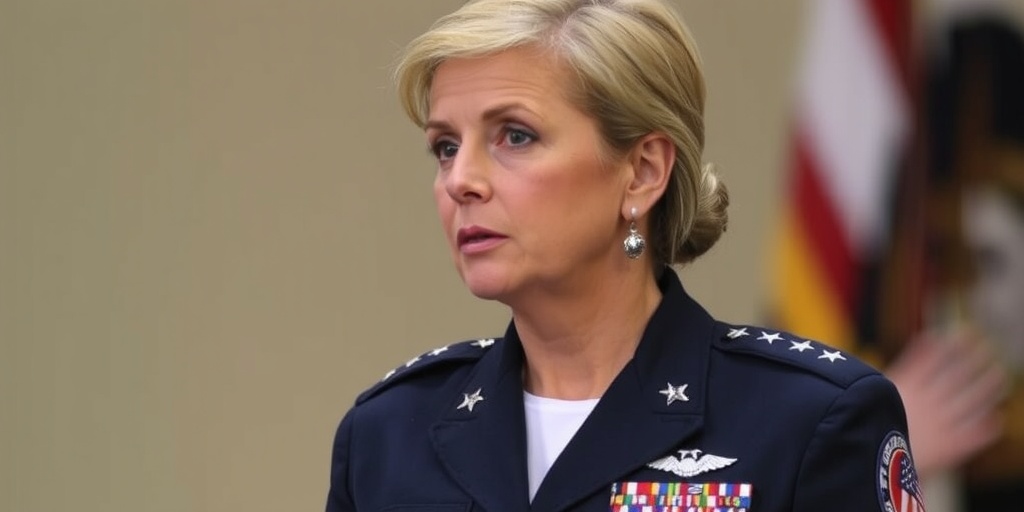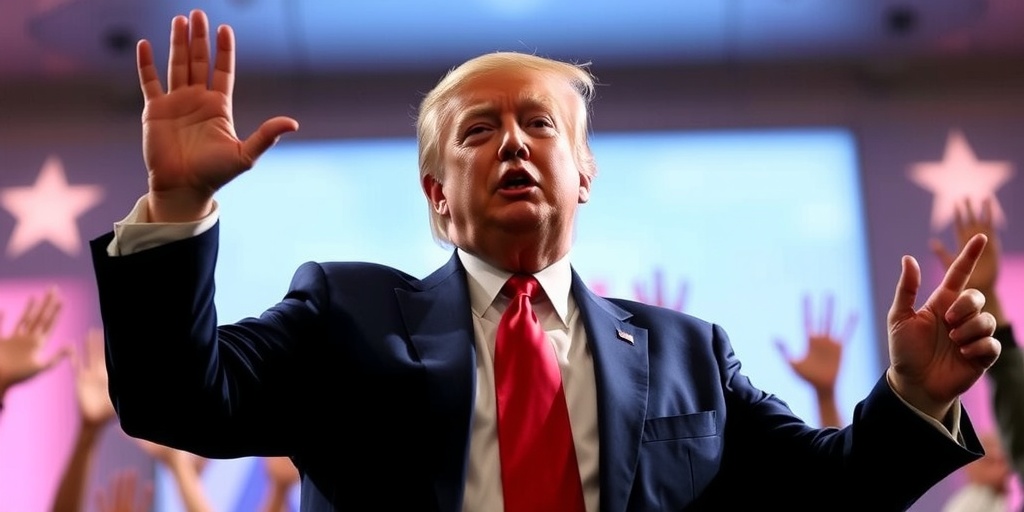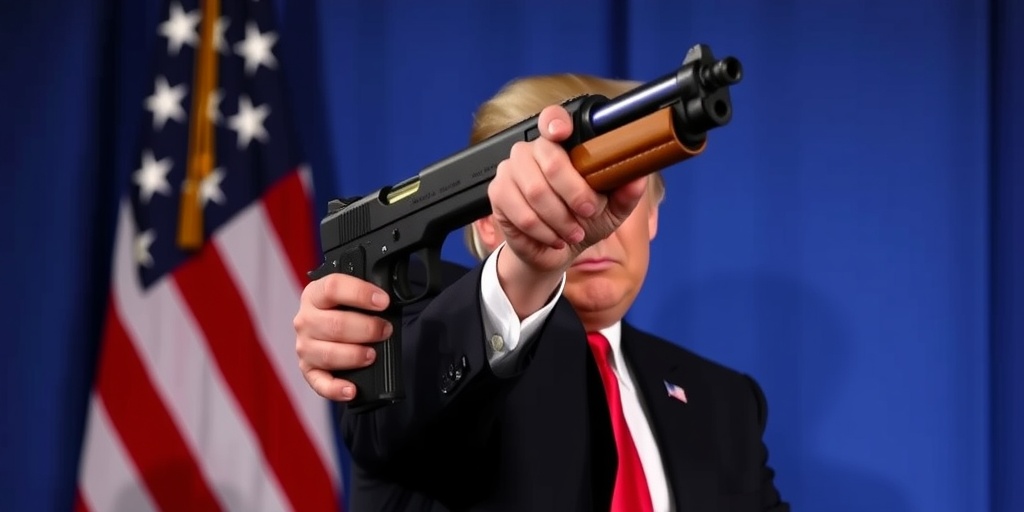Now Reading: Trump Administration Dismisses Another Female Military Leader
-
01
Trump Administration Dismisses Another Female Military Leader
Trump Administration Dismisses Another Female Military Leader

Title: Turmoil in the Trump Administration: Vice Admiral Shoshana Chatfield Fired Amidst Military Leadership Purge
In a significant and controversial move, the Trump administration has fired Vice Admiral Shoshana Chatfield, a respected naval leader who previously served as the U.S. representative to NATO’s military committee. This decision comes amid a broader pattern of military leadership changes orchestrated by Defense Secretary Pete Hegseth, aimed at removing officials deemed unfavorable by conservative factions within the military and political landscape.
Vice Admiral Chatfield, who has made history as the first woman to command the U.S. Naval War College in Newport, R.I., is now part of a troubling trend involving the dismissal of numerous senior military leaders who are women or people of color. High-profile figures affected by this purge include General Charles Q. Brown Jr., the former chairman of the Joint Chiefs of Staff; Admiral Lisa Franchetti, the former chief of naval operations; and Lt. Gen. Jennifer Short, who previously served as a senior military assistant to the defense secretary. Additionally, Admiral Linda Lee Fagan, the former commandant of the Coast Guard, has also been let go.
The recent firings extend beyond Admiral Chatfield and reflect a more extensive reshaping of military leadership under the Trump administration. In recent weeks, General Timothy D. Haugh, the commander of U.S. Cyber Command and director of the National Security Agency, along with General James Slife, the former vice chief of staff of the Air Force, have also been removed from their posts. These dismissals have led to growing concerns among lawmakers and military analysts, who worry about the long-term implications of such unprecedented changes within the military establishment.
There is currently ambiguity surrounding whether President Trump or Secretary Hegseth issued the order for Admiral Chatfield’s termination. This uncertainty underscores a climate of tension and instability within the administration, particularly following Trump’s dismissal of several national security officials, including General Haugh, after a meeting with controversial far-right activist Laura Loomer, known for her conspiracy theories and polarizing views.
The Pentagon has remained silent in response to requests for comments regarding the circumstances surrounding Admiral Chatfield’s firing, which was initially reported by Reuters. This lack of communication has only added to the intrigue and speculation surrounding the motivations behind her dismissal.
In a December letter to Secretary Hegseth, a conservative watchdog group highlighted Admiral Chatfield as one of several “woke ideologues” they believed should be purged from military leadership positions. Such characterizations reveal the increasing ideological polarization within the military and government, as conservative groups exert influence over personnel decisions, positioning themselves against perceived "liberal" policies and ideals.
The situation with General Haugh, who was ousted following accusations of disloyalty from Loomer, illustrates the intertwining of personal grievances and political maneuvering within the military hierarchy. General Haugh, who was selected for his position by General Mark A. Milley, the former chairman of the Joint Chiefs of Staff, has faced scrutiny from far-right figures who label him as a traitor for his association with Milley.
The ongoing firings of senior military leaders have sparked alarm among legislators on both sides of the aisle and have been described as “reckless” by former defense secretaries. These reactions stem from a concern that such actions could undermine the integrity of military leadership and the principle of civilian oversight of the armed forces, eroding the foundational norms that have historically governed U.S. military operations and decision-making.
As the Trump administration continues to reshape military leadership, the consequences of these actions remain to be seen. The implications of removing experienced leaders who have served their country honorably could have far-reaching effects on the military’s effectiveness, morale, and public trust. There is growing apprehension that these dismissals could foster a culture of fear and retaliation within the ranks, potentially stifling open discourse and critical decision-making in an institution that thrives on diverse perspectives and robust debate.
In conclusion, the firing of Vice Admiral Shoshana Chatfield is emblematic of a broader trend that raises important questions about the future of the U.S. military under the Trump administration. As the leadership purge unfolds, the military community, lawmakers, and the public will be watching closely to assess the ramifications of these controversial decisions on national security and military readiness in an increasingly complex world. The legacy of current leadership choices will likely influence the military’s structure and its relationship with civilian authorities for many years to come.
Stay Informed With the Latest & Most Important News
Previous Post
Next Post
-
 01New technology breakthrough has everyone talking right now
01New technology breakthrough has everyone talking right now -
 02Unbelievable life hack everyone needs to try today
02Unbelievable life hack everyone needs to try today -
 03Fascinating discovery found buried deep beneath the ocean
03Fascinating discovery found buried deep beneath the ocean -
 04Man invents genius device that solves everyday problems
04Man invents genius device that solves everyday problems -
 05Shocking discovery that changes what we know forever
05Shocking discovery that changes what we know forever -
 06Internet goes wild over celebrity’s unexpected fashion choice
06Internet goes wild over celebrity’s unexpected fashion choice -
 07Rare animal sighting stuns scientists and wildlife lovers
07Rare animal sighting stuns scientists and wildlife lovers




















